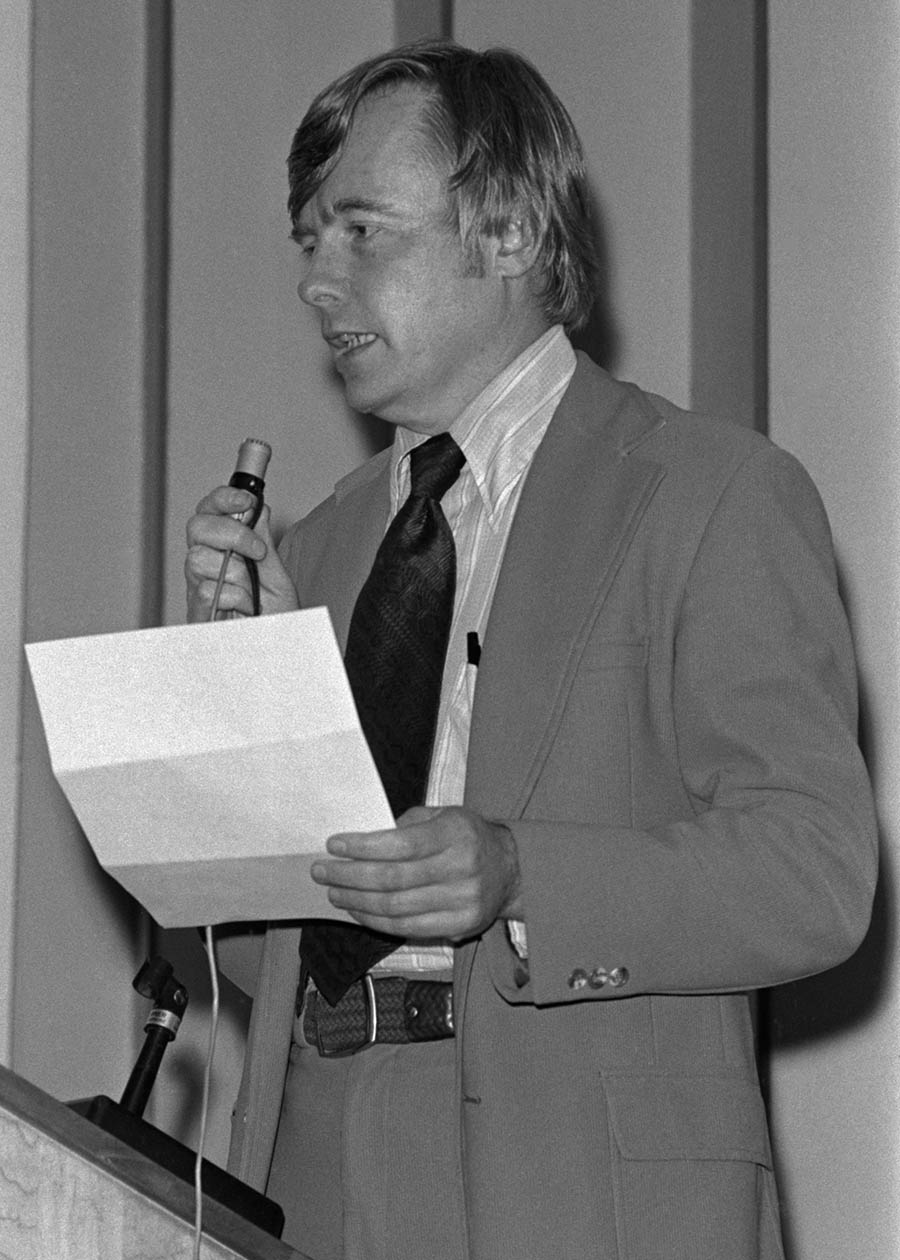
James Brann, life-changing journalism chair, 91
James Brann, who served as chair of the Department of Journalism at Boston University’s College of Communication and deeply inspired both students and reporters alike, died last week of a combination of pneumonia and heart related issues. He was 91.
Brann landed his first job in journalism with the Harrisburg Patriot News, where he covered John F. Kennedy’s presidential campaign and conducted an in-depth interview of the Rev. Martin Luther King, Jr. He later worked for several news agencies, and his articles were published in the New York Times, The Washington Post, The Boston Globe, The Atlantic, Columbia Journalism Review, The Nation and other high-profile periodicals.
Brann began teaching at Boston University in 1972, and served as chair of the journalism department from 1973 to 1980. He continued teaching until 1998.
He served as a U.S. Marine and earned his bachelor’s degree at Pennsylvania State University.
COM Dean Mariette DiChristina first learned the craft of journalism from Brann, she recalls. She says he changed the trajectory of her life — twice.
For his Introduction to Journalism course, Brann created a kind of “choose-your-own-adventure” exercise, DiChristina recalled, “where he would describe a news event and then ask students what their next phone call would be as reporters. For each tactic we suggested, he would give us a piece of information,” she said.
“Once we got all the facts out of him in this way, he would give us five minutes to bang out five paragraphs. You got a minute or two to proof it, and he would put an “F” on your paper if you didn’t catch all the spelling or grammar errors,” she said. “I found it exhilarating to figure out how to find information and share such important information to readers on a deadline.”
One day, Brann asked to see DiChristina after class. “I figured I must be failing—after all, how could I be doing well in a class that is both hard and really fun?” she said. “What he said floored 19-year-old insecure me: ‘What are you majoring in?’ I didn’t know. He pointed, like Uncle Sam, and said, ‘You should go into journalism. You are good at this.’ I took his advice, and spent the next 30-plus years as a science journalist, the last 10 of which I was editor in chief of Scientific American.”
Years later, Brann had a new career demand for her: to apply to serve as dean of Boston University’s College of Communication. “Nobody was more surprised than I was when BU wanted to interview me,” she said. “Jim, as usual, knew it all along.”
Brann made an impact few students forgot. “You could say I majored in journalism but minored in Brann,” said Michael Dowding, a current COM master lecturer and a former graduate student when Brann was the department chair.
“During my first weeks of his City Room 1 class,” he recalled, “I thought I was little Johnny Hotshot cranking out a car-crash story in record time, swooping over to the printer, and confidently strolling up with my printout for him to review and edit – and of course praise to the skies. He glanced down, spotted a horrifying spelling error, drew a big fat 0 at the top of the page, and silently slid it back to me, unable to contain his grin.”
The grade stayed and so did the lesson: spelling matters. “Oh, and grab yourself an extra helping of humility as you take your seat,” Dowding said.
He added that Brann “possessed an irreplaceable, inimitable combination of pragmatic teaching, savvy observation, informal mentoring, and unflagging support. Jim loved connecting people and connecting with people. He loved learning about new things from students.”
Caryl Rivers, a current COM professor of journalism and former colleague of Brann’s, remembers him as a “loyal friend” and “wonderful dad,” adored by his three sons.

“Before coming to BU, he had covered education for a number of publications and was well-versed in that subject,” Rivers said. “He was a strong advocate for the department with (then BU President) John Silber and was instrumental in hiring a number of very good faculty members. If you went to him with a good new idea he liked, he would encourage you.”
Brann made an impression in Hugo Shong’s first City Room 1 class in fall 1986, even having students write their own obituaries to help teach them how to think about impactful storytelling. Shong became a journalist and now is chairman of IDG Capital.
“Jim was my favorite professor at COM,” he said, “and I am sure he will be missed by many of his former students.”


